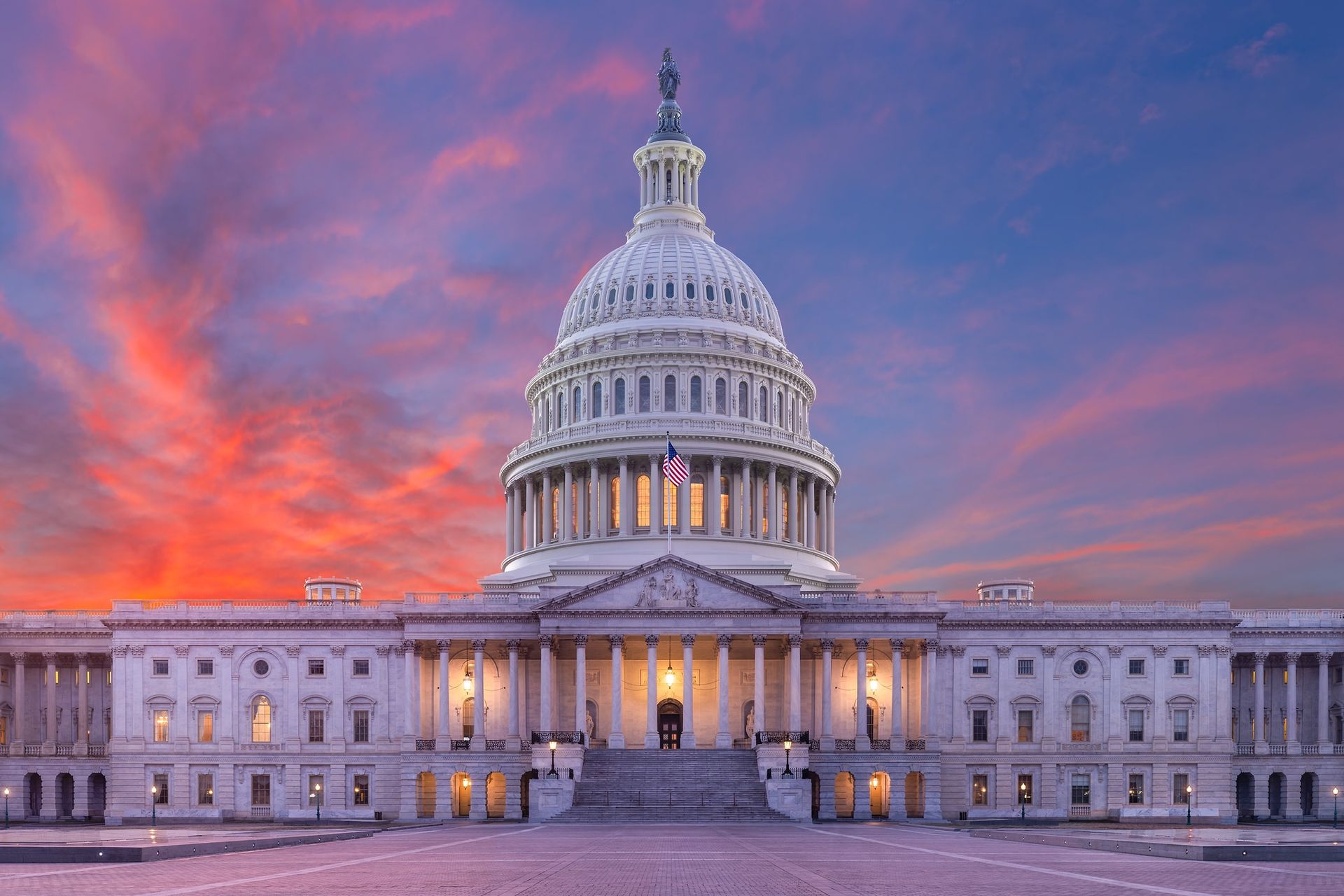Resolving family legal issues can be stressful and complicated. Emotions run high, and it can be difficult to see the matter clearly. You need objective legal counsel from an experienced family attorney. Call the Law Office of John Williams in Charlotte, NC. John Williams can assist you if you're filing for divorce. He also handles child custody and guardianship cases.
Arrange for a consultation with a divorce attorney in Charlotte, NC today.
Our Constitutional Republic
Reclaiming Accountability:
The Power of "We the People" in a Weary Republic

Reclaiming Accountability:
The Power of "We the People" in a Weary Republic
The Frustration with Unaccountable Leadership
In an era where headlines scream of scandals involving high-ranking officials, from allegations of corruption to outright betrayals of public trust, many Americans find themselves asking: When will the cycle end? Are you tired of the same old story, where politicians and government figures evade consequences for what our Founding Fathers would have deemed treason or other "high crimes and misdemeanors"? I certainly am. The frustration is palpable, shared by citizens across the political spectrum who watch as those in power seem to operate above the law, facing no real ramifications for their actions. Yet, the solution lies not in distant halls of power but in our own hands. It begins with "We the People", the foundational phrase that opens the United States Constitution, reminding us that ultimate authority resides with the citizenry.
The Constitutional Mandate for Citizen Power
This premise is not mere rhetoric; it is enshrined in our nation's charter. The Constitution's Preamble declares that "We the People" ordain and establish the government to secure the blessings of liberty, implying an active role in its maintenance. But over time, we have grown complacent, allowing laziness to erode our vigilance. We fail to scrutinize candidates thoroughly, relying on soundbites, endorsements, or party labels instead of delving into their core beliefs and potential actions. This apathy starts at the local level, where decisions ripple upward to affect national policy. Do you truly know the individuals you vote for? Or do you trust someone else's assessment, only to regret it later when their votes contradict your expectations?
Voter Regret and the Importance of Voting Records
Consider the case of Jeff Hurd, the Republican representative from Colorado's 3rd Congressional District, elected in 2024. Many voters who supported him last year might now wish to retract their ballots, disillusioned by his voting record or perceived deviations from promised stances. Hurd's tenure has sparked regrets among many constituents, as evidenced by public expressions of disappointment over choices made in primaries and beyond. His legislative actions, documented in congressional records, highlight the importance of tracking how representatives vote rather than what they proclaim during campaigns. This is not an isolated incident; it underscores a broader pattern where elected officials promise one thing and deliver another, leaving voters feeling betrayed.
Impeachment as a Constitutional Tool
The Constitution provides mechanisms for accountability, particularly through impeachment for "Treason, Bribery, or other high Crimes and Misdemeanors," as outlined in Article II, Section 4. This clause empowers Congress to remove the President, Vice President, and all civil officers upon conviction, ensuring that no one is above the law. Historically, this has been invoked in notable cases, such as the impeachment of President Andrew Johnson in 1868 for violating the Tenure of Office Act, a move seen as an abuse of executive power. More recently, impeachments of federal judges like Alcee Hastings in 1989 for bribery and perjury demonstrate that the process extends beyond the executive branch, targeting misconduct that undermines public trust. These precedents illustrate that the Founders intended impeachment as a tool for "We the People," through our representatives, to excise corruption from government.
The Limits of Impeachment and the Need for Electoral Vigilance
Yet, impeachment is reactive, often bogged down by partisan politics. True change demands proactive engagement from voters. The Supreme Court has long affirmed the centrality of electoral accountability in our democracy. In cases like Reynolds v. Sims (1964), the Court ruled that legislative districts must be roughly equal in population to ensure "one person, one vote," reinforcing the principle that citizens' voices must carry equal weight in holding officials accountable. This decision built on the Voting Rights Act of 1965, which aimed to eliminate barriers to voting, though subsequent rulings like Shelby County v. Holder in 2013 weakened federal oversight, leading to new restrictive laws that complicate voter participation. Despite these setbacks, the Court's jurisprudence underscores that electoral processes are the primary means for citizens to enforce accountability.
Evaluating Candidates: Beyond the Surface
At the heart of this is the need to evaluate candidates beyond superficial traits. For newcomers without a voting history, we must assess their associations, integrity, and reliability. Do they surround themselves with individuals of good character? Have they demonstrated consistency in their personal and professional lives? These questions are not abstract; they are practical tools for discerning a "good egg" from a potential deceiver. The Constitution's emphasis on republican government, where representatives are chosen by the people, implies this duty of diligence. As James Madison noted in Federalist No. 51, "If men were angels, no government would be necessary," highlighting the need for checks, including vigilant citizenship.
Policy Over Personality
Shifting focus to incumbents, accountability hinges on policies over personality. I could not care less if a politician is brusque or unlikable, as long as they deliver on commitments. History is replete with effective leaders who were far from charismatic, yet their policies advanced the nation. Consider Theodore Roosevelt, whose "big stick" diplomacy was blunt but effective in asserting American interests. In contrast, charming figures have often masked detrimental actions. The key is transparency: Voters prefer to "see them coming" rather than endure backstabbing niceties.
Swift Action Against Betrayal
When representatives falter, failing to align their votes with professed values, swift action is essential. The Constitution allows for this through regular elections, but also via recall mechanisms in some states, rooted in progressive-era reforms to empower citizens directly. Legal precedents support this; for instance, in Richardson v. Ramirez (1974), the Supreme Court addressed voting rights for felons but affirmed states' broad authority over elections, including accountability measures. Moreover, the impeachment process, as seen in the case of President Bill Clinton in 1998 for perjury and obstruction, shows that even popular figures can face consequences for misconduct, though acquittal highlighted the political nature of the tool.
The Design of Our Republic
The Founders designed our system as a Constitutional Republic, not a pure democracy, to balance majority rule with protections against tyranny. Article I vests Congress with legislative power, but it is elected by the people, ensuring accountability. However, as the premise notes, we have complicated this simplicity through legalese and political maneuvering. Since the Constitution's ratification in 1788, incremental erosions like the expansion of executive power or judicial overreach have distanced governance from the people. The 17th Amendment's direct election of senators in 1913 aimed to enhance accountability but sometimes amplified special interests.
Recommitting to Self-Governance
To reverse this, we must recommit to self-governance. This means researching candidates meticulously: Reviewing voting records via official congressional sites, attending town halls, and engaging in community discussions. For figures like Hurd, whose record includes votes on environmental and public lands issues, voters can access detailed breakdowns to assess alignment with local priorities. If discrepancies arise, mobilize for primaries or general elections to replace them.
Historical Roots of Accountability
Legal scholars often cite the English roots of impeachment, where Parliament removed corrupt officials, as influencing our system. In the U.S., this evolved to include "high crimes and misdemeanors," a broad category encompassing abuses of power, not just criminal acts. The impeachment of Judge Walter Nixon in 1989 for lying to a grand jury exemplifies this, as it addressed betrayal of judicial integrity. Such cases remind us that accountability is not optional; it is constitutionally mandated.
The Rarity of Impeachment and the Power of the Vote
Yet, Congress has impeached only 21 individuals in history, with eight convictions, mostly judges. This rarity underscores why electoral vigilance is paramount. Supreme Court decisions like Bush v. Gore (2000) affirmed the role of states in elections but also highlighted the need for fair processes to maintain trust. More recently, in Louisiana v. Callais (2025), the Court grappled with voting maps and minority representation, emphasizing equitable electoral accountability.
The task before us is monumental yet straightforward: Reclaim our role as "We the People" by demanding accountability through informed voting and advocacy for impeachment when warranted. Let us shed our laziness, research deeply, and judge by deeds over words. Keep the "good eggs" who uphold their promises, regardless of demeanor, and oust the "bad eggs" who betray us. Our Constitutional Republic depends on this vigilance. Since 1788, we have let it slip, but now is the time to grasp it firmly. Start locally, act nationally, and ensure that treason and high crimes meet swift justice. The power is ours; let us wield it wisely.
Michael J Badagliacco, “MJB”
Michael is the father of five and grandfather of three, United States Air Force Veteran, International Recording Artist, passionate about the United States of America and the founders Genius of the Constitution and Editor-in-Chief, Colorado DOGE Report (coDOGEreport.com).
